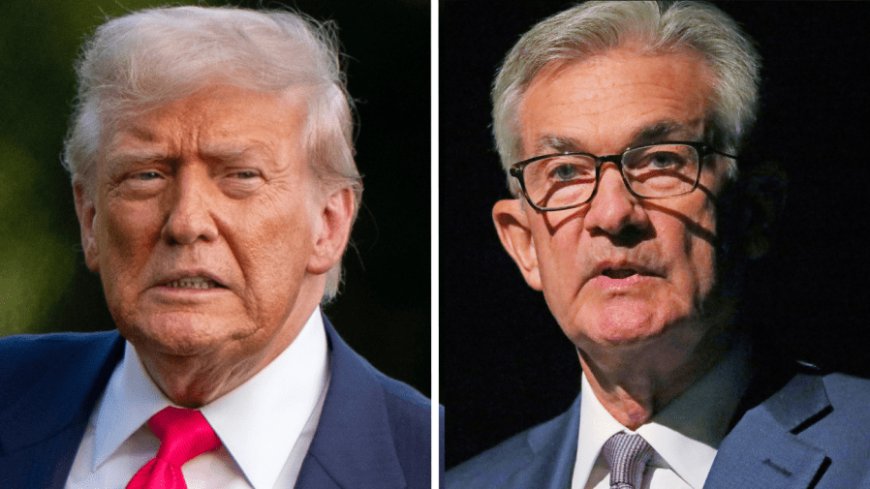Not even Trump can fire Jerome Powell
In a functioning democracy, some walls are meant to hold firm, no matter who sits in the Oval Office

It's just six months into President Trump’s second term, and speculation is swirling about the fate of his Federal Reserve chairman, Jerome Powell. Headlines pulse with the drama of his impending firing, and pundits are debating the consequences — as if such an act were merely a question of presidential will.
Yet beneath the spectacle lies a profound misunderstanding, not just of law but of the very architecture of American governance. The truth is simple: the president cannot legally remove the Fed chair at will. This is not political theater — it is constitutional guardrail.
As the Brookings Institution artfully explains, the Federal Reserve’s independence is no accident or mere convention. It is the deliberate product of decades of legal and institutional design intended to shield monetary policy from transient political pressures.
Jerome Powell’s term as chairman is set by a statute duly enacted by Congress and signed by a president. He serves a fixed four-year appointment as chair and a 14-year term on the Board of Governors — tenures designed to transcend electoral cycles and partisan shifts. The president’s authority does not extend to firing him without cause — and "cause," in this context, means serious misconduct, not simply disagreement over interest rates or inflation management.
The media frenzy around Trump’s desire to oust Powell plays to a broader narrative about executive power run amok. Yet this impossible scenario risks distracting us from more urgent economic realities and undermining the fragile trust in our financial institutions. As key Republicans are currently attempting to point out to the president, this risks normalizing the idea that the Fed chair is a political appointee, subject to the caprices of whoever occupies the White House. This threatens the very confidence that markets and the public place in the central bank’s impartiality and stability. It would be nothing less than a body-blow to American democracy.
Why then, does this myth persist? Part of the answer lies in the deeply performative nature of modern politics and media in the Trump era. The president’s public disparagement of Powell and the Fed feeds into a spectacle that blurs the line between political rhetoric and constitutional fact. For Trump’s supporters, talk of firing Powell signals a willingness to challenge entrenched powers. For opponents, it offers a rallying cry to defend democratic norms. But for the country at large, it can be confusing, sowing doubt where clarity is sorely needed.
This moment calls for a sober reassessment of how we talk about the Federal Reserve. The real threats to its independence are subtle and systemic: political pressure applied through legislation, undermining funding, or eroding norms that protect its autonomy. These dangers do not announce themselves with fireworks; they creep in quietly and cumulatively. The distraction of an illegal firing narrative is a convenient smokescreen that allows these risks to go largely unexamined.
We need to confront the actual economic challenges in this country that demand our attention. Inflation remains a persistent concern; global economic uncertainty looms large; and the labor market is evolving in ways that require nuanced, long-term policy responses. The Fed’s role in steering the economy through these complexities is critical, and must remain insulated from political impulse.
Historically, the independence of the Fed has been fiercely guarded, even amid the most intense political storms. Since the Fed was founded in 1913, no president has ever removed a Fed Chair over a policy disagreement. This resilience is a testament to the wisdom of the legislators who recognized that monetary policy divorced from partisan politics is essential to economic stability and democratic governance.
In the end, the renewed speculation about Trump firing Powell serves neither truth nor the public interest. It is a distraction — one that misrepresents legal reality and trivializes the importance of independent institutions. Our focus should be on safeguarding those institutions, understanding the economic stakes, and fostering a political culture that respects the boundaries of power.
Because in a functioning democracy, some walls are meant to hold firm, no matter who sits in the Oval Office.
Aron Solomon is chief strategy officer for AMPLIFY and has taught entrepreneurship at McGill University and the University of Pennsylvania.
What's Your Reaction?
























